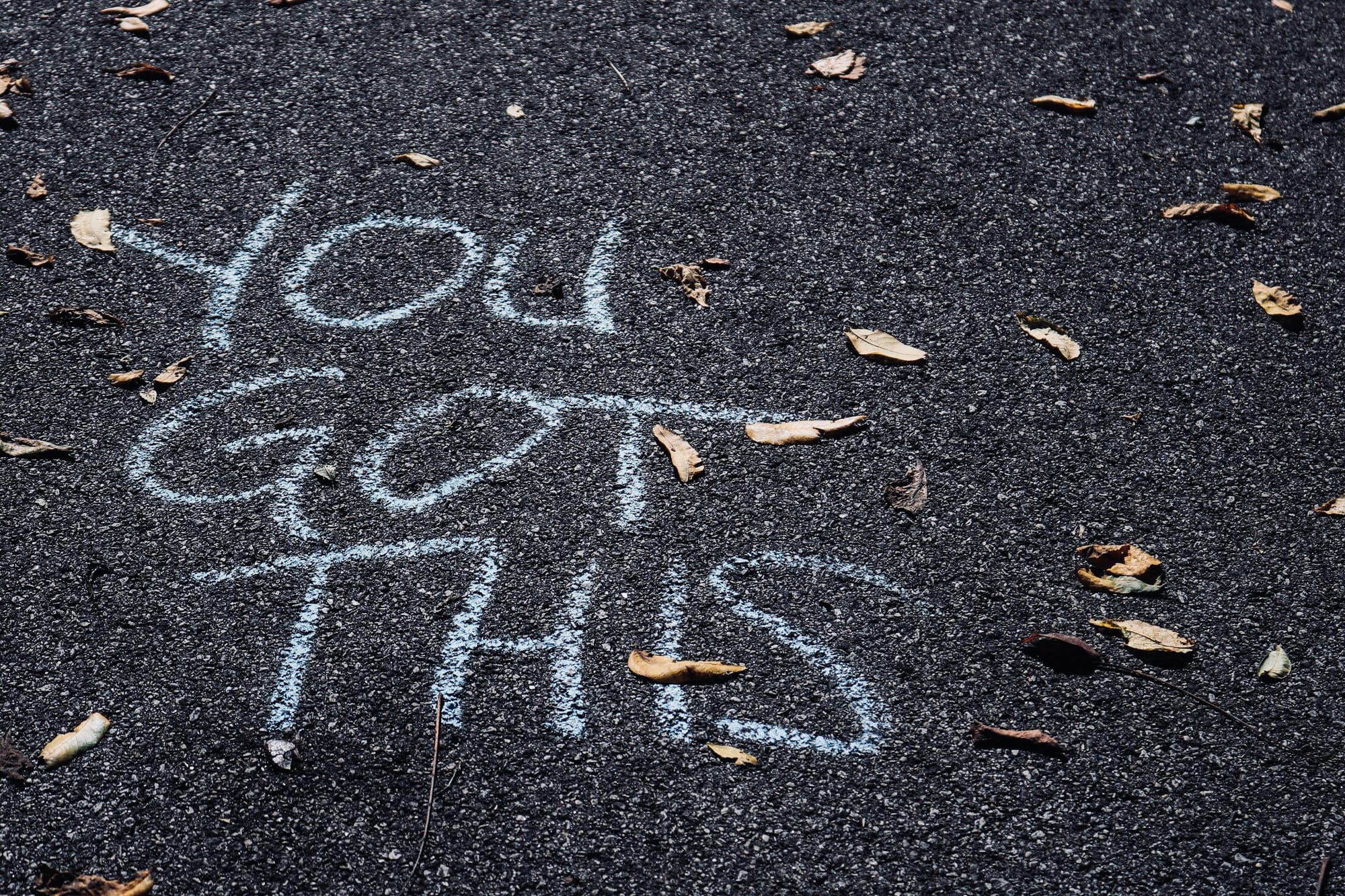That inner fan frequency
"You don't yell at a bud because it isn't a flower yet."
Larry Moss
As we transition into a new season, there's something powerful about taking stock of where we are and where we want to go next.
But truth be told, it can also feel a little daunting to set or review our goals - especially if we're getting a little caught up in outcomes, results or expectations, rather than the journey itself.
Well, if there's one thing we've learnt at Mojo over the years... It's that compassionate self-reflection is a game-changer when it comes chasing down our goals and dreams. It's the ultimate competitive edge.
And yet, it's rarely our 'go-to' habit as humans. Because sitting with ourselves can be pretty bloody scary when we're not well acquainted with our Inner Fan.
When we're in the throes of our hero's journey, it's easy to second-guess ourselves and overlook the little wins that have been accumulating in the background.
Before long, we might find ourselves listening to Inner Critic FM - that sneaky internal radio station where it's all pressure and no patience.
Sometimes, we don't even realise we're tuned into this frequency. That harsh internal voice has become so familiar that it sounds like fact, rather than just a limiting belief or story that we're telling ourselves about ourselves. We mistake its relentless commentary for motivation, convinced that without it, we'll somehow lose our edge.
Other times, we might knowingly choose to listen because we believe that's what high performance demands. That to reach our biggest goals, we need our Inner Critic to push us harder.
Sure, many people do their best work through constructive criticism, the thrill of rising to a challenge, or embracing some healthy competition. But the emphasis here needs to be on healthy.
Harsh drill sergeants might make for great drama on film or TV, but in real life, they don't do much for our Performance Confidence, let alone our Self-Confidence.
Believe it or not, it's actually self-compassion - the wisdom of our Inner Fan - that motivates us more effectively than self-criticism.
We might think that cutting ourselves some slack will lead to complacency, or a drop in the quality of our work or performances. But the science tells us a very different story, as Associate Professor Kristin Neff shares:
"[With self-compassion], we try to achieve, not to avoid self-judgment, but because we care about ourselves. This supportive mindset better enables us to learn from our mistakes and failures. Research shows that self-compassion engenders a learning and growth orientation that improves performance."

Because it's this station that broadcasts all the best stories, and plays the best tunes (obviously 😉). It just needs a little loyalty and curiosity from its no.1 listener. You!
Great things always take time, perseverance, and a lot of self-compassion.
Simply acknowledging the struggles, and accepting exactly where you're at today is one of the most underrated ways to champion your Inner Fan - and to support those next steps towards your goals and dreams.
After all, "you don't yell at a bud because it isn't a flower yet" as Jason Alexander learned from his Hollywood acting coach, Larry Moss.
Remember, no matter what you're working on today, this month, or this year - progress isn't linear. Often, we go backwards to go forwards, and fall down many times before we can find our feet again.
Sometimes we learn fast, and other times, it's a slow slog. And that's ok! It takes time, practise and patience to unlock Self Confidence, Performance Confidence, and harness the power of self-compassion in the process.
Wherever you're at today, just think of the bud:
"It's gonna be a flower, but it opens when it's time for it to open."
Ready to get started?
Everything changes when we learn to tune into that inner fan frequency 📻
Check out our Building Self-Confidence and Unlocking Your A-Game programs to harness the power of self-compassion, and bring the best version of yourself to every performance 👇